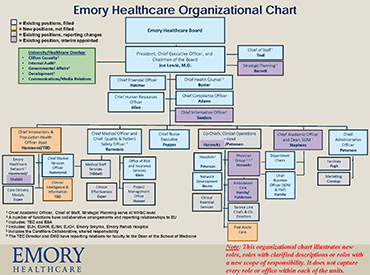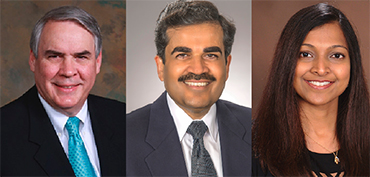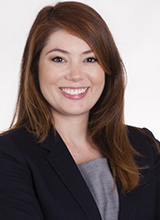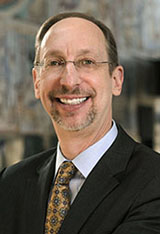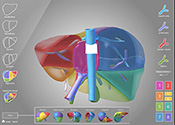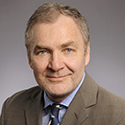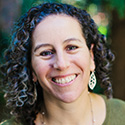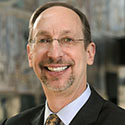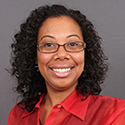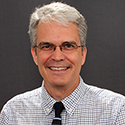
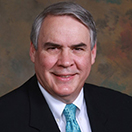 Recognizing lifetime achievement Recognizing lifetime achievement |
 2017 Georgia legislative roundup 2017 Georgia legislative roundup |
 New sports med and primary care clinics New sports med and primary care clinics |
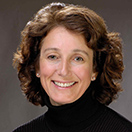 In brief In brief |
| June 20, 2017 | ||||||||||
Recent changes in the EHC organizational structure
In a memo last month to all Emory Healthcare staff, EVPHA Jon Lewin outlined recent changes to the EHC architecture, including changes and additions to the EHC org chart. He emphasized that such changes are needed to help EHC succeed in the new world of health care, in which EHC must do the following: - Be strategic, yet nimble. - Be more responsive to the needs of our patients and their families, to our community, and to the changing market. - Secure our position as a unique, indispensable academic health system. - Create an engaging work and learning environment for our employees, students, and trainees. - Push the boundaries of what is possible through the integration and alignment of our missions. He described the organizational changes as minor and focused on bringing together like functions so they may work together for the benefit of the system. These changes include a few reporting relationships, with the purpose of bringing better alignment and integration. Key changes include the following: - Co-Chiefs, Clinical Operations dyad (Ira Horowitz as interim and Dane Peterson): These two roles ensure synergy between our hospitals and physician group practices and more formally codify the collaboration and accountabilities necessary to achieve our clinical integration goals. - Chief Innovations & Population Health Officer dyad (Patrick Hammond and TBD): These two roles ensure a strong connection between the Emory Healthcare Network, new care delivery models, market services, and clinical information and will play a critical role in transforming our operational approach to population health, care management, and provider alignment. - Chief Patient Safety Officer (Bill Bornstein): This role will be included in the current scope of our system Chief Medical Officer and Chief Quality Officer, linking to medical staff services, clinical effectiveness, risk, and the project management office. - Chief Academic Officer (David Stephens as interim): This new role within EHC will focus on curriculum development for our students and driving excellence in patient care delivery and population health management by applying scientific discoveries. - Chief Information Officer (Sheila Sanders as interim): This role will now report directly to the EVPHA to ensure that IT systems support overall system goals and needs. - Chief Administrative Officer (Dane Peterson): This new role will work with a variety of EHC leaders to advance cost management, service excellence, and operational improvement initiatives within EHC. It will also oversee facilities/expansion for the system and marketing. Note: The org chart above is not comprehensive and reflects only new roles and areas with changes in reporting. Physicians, nurses, and researchers honored as health care heroes
The Atlanta Business Chronicle selected WHSC faculty and staff as winners or finalists in all seven categories in its annual Health Care Heroes Awards competition. Robert Guyton, director of cardiothoracic (CT) surgery, received the Lifetime Achievement Award for contributions to his field over a 37-year career at Emory. Under his guidance, Emory’s CT surgery program has achieved national recognition as one of the country’s top five programs in areas including off-pump coronary revascularization, congenital cardiac surgery, robotic mitral surgery, major aortic surgery, robotic-assisted coronary bypass, and transcatheter aortic valve replacement. Guyton has influenced his field in other fundamental ways as well. For almost three decades, he has been responsible for the education of some of the most accomplished and successful CT surgeons in the country, participating in the training of more than 140 resident physicians. Emory's CT surgery residency program accounts for approximately 5% of all active cardiac surgeons in the country today. Zoher Kapasi, director of physical therapy (PT), which is recognized as one of the top PT education programs in the country, was a winner in the Allied Health Profession category. His accomplishments include implementing the DPT-MBA program at Emory, advancing the first PT faculty clinical practice within the Emory Clinic, implementing the dual Emory/Georgia Tech DPT/PhD program, overseeing development of the first two residency programs for physical therapists at Emory (orthopaedics and neurology), collaborating with the Emory Center for Ethics to implement a DPT-Bioethics dual-degree program, and growing research funding more than five-fold. Subhadra Shashidharan, pediatric CT surgery, was the winner in the Rising Star category. The first female CT surgeon at Children’s, she repairs heart defects in Atlanta's most fragile patients. "Dr. Shashidharan combines a steely determination to accept nothing but the very best for her patients with a calm, reassuring bedside manner, putting the most anxious parents at ease," says pediatric cardiologist William Mahle. Her clinical specialties are cardiac transplant, congenital heart surgery, pediatric cardiac surgery, and thoracic surgery. She handles approximately 200 surgical cases annually. In addition to the three winners, the following were finalists: - Barunashish Brahma, pediatric neurology (Physician category) 2017 Georgia legislative session
The 2017 session of the Georgia General Assembly marked a successful year for health care at Emory. The legislature appropriated more than $5 million for programs within the WHSC, the bulk of which will go to developing the Georgia Alzheimer's Project within the Brain Health Center to increase access to consistent diagnosis around the state and connection to patient resources. The legislature also appropriated funding for the Emory Autism Center to develop an adolescent-to-adult transition model that will streamline resources across the spectrum of educational, health, vocational, residential, family, and other relevant partners to improve outcomes for adults with autism. Emory supported the protection of the certificate of need (CON) process this year and worked with others in the hospital industry to defeat five separate measures that attempted to weaken the program. Preservation of CON ensures the availability of adequate health care services to meet the needs of all Georgians. Hospitals also saw the renewal of the Hospital Provider Payment Program through 2020, which will continue to allow the state to draw down additional Medicaid dollars by levying a fee on hospitals based on a percentage of their net patient revenue. The program began in 2010 and is estimated to be worth about $900 million in Medicaid funding. The legislature sought to curb the abuse of opioid prescription drugs through physician use of the state's Prescription Drug Monitoring Database (PDMP). Beginning January 1, 2018, physicians will be required to check the PDMP before issuing a prescription for certain Schedule II substances. The PDMP will be moved under the state Department of Public Health to assure that the system is fully operational. Updates were made to the existing low-THC-oil law to add six conditions for the use of medical marijuana, including Alzheimer's and autism. Physician reporting is changed from quarterly to twice a year. Despite attempts to change the level of THC to 3%, the provision remains at the current 5%. A number of provisions passed the legislature impacting nurses. Notably, the legislature approved a measure that allows Georgia to enter into the Nurse Licensure Compact. The bill also allows Georgia to enter into an EMS licensure compact. Finally, the number of advanced practice registered nurses that a physician can delegate authority to was increased from four to eight. Legislation intended to curtail the practice of balance billing failed to receive final passage this year. The legislature will likely take up the issue again next session. An indication of the other topics that the legislature will look at next session are the study committees they'll engage in over the months leading up to next year. Legislators interested in a particular topic can pass legislation to create a study committee, to be comprised of several members who will meet around three to four times with various experts and stakeholders on the issue. That study committee can then make legislative recommendations for the upcoming session. Leadership in both chambers have the discretion to appoint the study committee. The following committees are available for appointment this year:
View a complete list of health care bills of interest to Emory that passed this session. Emory Healthcare chosen to anchor sports medicine pavilion
Atlanta Sports City recently announced plans for a nearly 200-acre, multi-faceted sports and entertainment complex in Stonecrest and has selected Emory Healthcare and the Emory Sports Medicine Center to anchor its Sports Medicine Pavilion in the new development. EHC was chosen in part because EHC physicians care for more professional athletes in Atlanta than any other group as the official team physicians of the Atlanta Hawks, Atlanta Braves, Atlanta Falcons, and Atlanta Dream. "Our collective vision for this partnership will establish on-site integration of multi-sport athletic competition and training with sports medicine diagnostic equipment, medical care, and sports medicine research," says Scott Boden, director of the Emory Orthopaedics & Spine Center. "We expect this to be a unique feature for an athlete or a parent deciding to visit Atlanta Sports City." In addition to the Sports Medicine Pavilion, the development will include a Medical Office Health Park anchored by a multi-specialty Emory Clinic facility. Read more. |
| From the Executive VP
Changing the architecture
Just over a year ago, I launched a planning initiative aimed at reviewing our current architecture to determine what needs to be improved and/or changed as we prepare to meet the challenges and opportunities that lie ahead for Emory Healthcare. Please direct questions and comments to evphafeedback@emory.edu.
New chair for BME
Susan Margulies has been named the Wallace H. Coulter Chair of the Coulter Department of Biomedical Engineering and a Georgia Research Alliance Eminent Scholar in injury biomechanics. Her appointments are effective August 1. Read more. Excellent outcomes with tiny pacemaker
An international clinical trial, led by Emory Heart & Vascular Center researchers, reports excellent outcomes for the world's smallest, minimally invasive cardiac pacemaker, the Micra Transcatheter Pacing System (TPS). Study results were reported by Emory at the Heart Rhythm Society Scientific Session 2017 and published in Heart Rhythm. Unlike conventional pacemakers, the vitamin-sized Micra TPS does not require the use of leads, which are sometimes the source of serious medical complications such as infection and vein injury. Read more. Exposome center grant renewed
The HERCULES Exposome Research Center, based in RSPH, received a five-year, $7.5 million NIH funding renewal. The center was established in 2013 to explore ways in which the exposome—the study of environmental exposures and associated biological responses on human health over the course of a lifetime—impacts health and disease. Read more. NIH funds study of improved post-transplant regimens
The NIH awarded Emory transplant researchers $12.6 million to investigate improved post-transplant drug regimens for organ transplant recipients, which use co-stimulation blockade immunosuppressant drugs developed at Emory. Read more. Synergy II awardees Recipients of the WHSC's second round of Synergy awards, representing collaborators between basic science and other disciplines, were announced last month: - Stephen Traynelis (pharmacology) and Sookyong Koh (neurology), “Role of gain of function and loss of function GRIN2A mutations in neuronal excitability and epileptic encephalopathy.” - Renhao Li (pediatrics) and Eric Ortland (biochemistry), “Structural Basis for the Autoinhibition of von Willebrand Factor.” - Haian Fu, Taofeek Owonikoko, Gabriel Sica, Yuhong Du, Suresh Ramalingam, Wei Zhou, and Rebecca Pentz (Winship), “Development of cancer patient–derived organoid system for high throughput therapeutic screening and precision oncology.” - Zhexing Wen (psychiatry), Michael Gambello (human genetics), and Gary Bassell (cell biology), “Modeling autism spectrum disorder and translating for therapeutics with TSC patient derived 3-D cerebral organoids.” Targeting amyloid and tau together
Keqiang Ye’s lab at Emory recently published a paper in Nature Communications that offers a two-for-one deal in Alzheimer’s drug discovery, an enzyme involved in processing both amyloid and tau. Read more. New website for visual teaching tools
Check out the new Visual Medical Education website for illustration, animation, virtual models, apps, and more. Notable
Winship director Walter J. Curran Jr. received the 2017 MCG Distinguished Alumni Award from the Medical College of Georgia.
Vijaya Kancheria (epidemiology, RSPH) and co-authors received the James Wilson Publication Award from the Tetralogy Society for their paper on preventing spina bifida and anencephaly, published in Birth Defects Research.
Karen Levy
EVPHA Jon Lewin (radiology and biomedical engineering [SOM]; health policy and management [RSPH]) is one of two recipients of this year's Radiology Leadership Institute Leadership Luminary Award.
Renee Moore (biostatistics, RSPH) will be named a Fellow of the American Statistical Association next month.
Lance Waller (chair, biostatistics, RSPH) will serve a three-year term on the National Academies' Board of Mathematical Sciences and Analytics. Calendar June 30: Application deadline for the third cycle of the WHSC Synergy Awards to support new collaboration projects among WHSC schools, centers, and faculty.
Aug. 10: Applying Collaborative Big Data Science for Predictive Health. Part of the Think Big Symposium Series. 8 a.m. - 5 p.m. RSPH, CNR Bldg. More info.
Oct. 14: 7th annual Winship Win the Fight 5K. Atlanta Hawks star Dominique Wilkins will serve as grand marshal. More info. |

